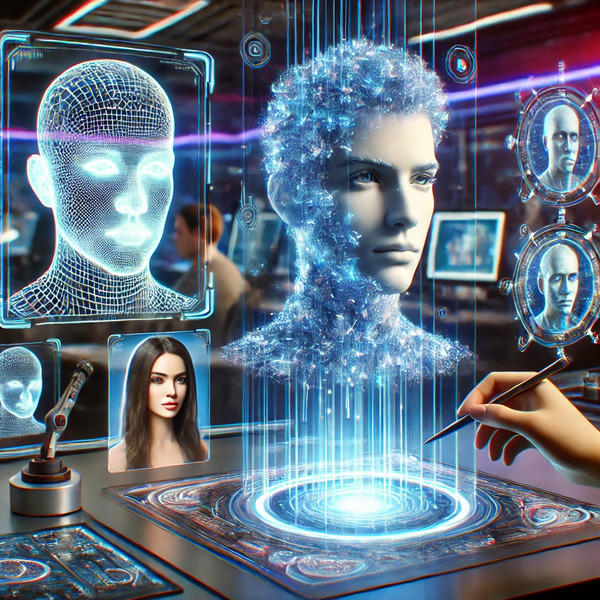Notifications
ALL BUSINESS
COMIDA
DIRECTORIES
ENTERTAINMENT
FINER THINGS
HEALTH
MARKETPLACE
MEMBER's ONLY
MONEY MATTER$
MOTIVATIONAL
NEWS & WEATHER
TECHNOLOGIA
TV NETWORKS
VIDEOS
VOTE USA 2026/2028
INVESTOR RELATIONS
COMING 2026 / 2027
ALL BUSINESS
COMIDA
DIRECTORIES
ENTERTAINMENT
FINER THINGS
HEALTH
MARKETPLACE
MEMBER's ONLY
MONEY MATTER$
MOTIVATIONAL
NEWS & WEATHER
TECHNOLOGIA
TV NETWORKS
VIDEOS
VOTE USA 2026/2028
INVESTOR RELATIONS
COMING 2026 / 2027
About Me
 Soul Maite
Soul Maite Soulmaite is the world's first platform for ultra-realistic relationships with virtual AI companions via WhatsApp. Our intelligent app delivers personalized conversations, offering emotional companionship, mental well-being insights, and thoughtful interactions for your unique preferences. Connect anytime and anywhere with an AI companion that understands your needs, bringing companionship into the digital age.
 Soul Maite -
December 16, 2024 -
Technology -
ai chatbot
-
377 views -
0 Comments -
0 Likes -
0 Reviews
Soul Maite -
December 16, 2024 -
Technology -
ai chatbot
-
377 views -
0 Comments -
0 Likes -
0 Reviews

In today’s fast-paced digital world, businesses face increasing pressure to provide seamless interactions and instant responses to user needs. Technology has evolved rapidly, giving rise to AI chatbots as a practical and highly effective solution. These chatbots have quickly gained attention, becoming an integral part of customer service strategies across industries. They are designed to simulate human-like interactions, helping users resolve queries, complete tasks, and feel valued.
So, what exactly makes AI chatbots so impactful? To answer this question, let’s examine how they work and why they are considered indispensable in delivering better user experiences.
AI chatbots operate using advanced algorithms, natural language processing (NLP), and machine learning. They are programmed to understand text and voice inputs, interpret the context, and generate appropriate responses. Unlike traditional systems that follow predefined scripts, these chatbots learn from interactions, improving their responses over time. This means that their performance doesn’t remain static but grows as they process more data.
For instance, when a user asks about troubleshooting an issue, the chatbot not only provides a solution but also remembers this interaction for future reference. Such adaptability ensures that users feel their needs are understood and addressed promptly.
One of the most appreciated features of AI chatbots is their ability to provide instant answers. Users no longer have to wait on hold or navigate through complex phone menus. For businesses, this means fewer bottlenecks in their support systems. Customers appreciate the quick resolution of their problems, fostering trust and satisfaction.
Unlike human agents, chatbots don’t need breaks or holidays. They operate around the clock, ensuring that users can access support whenever needed. This continuous availability is particularly useful for global businesses catering to customers across different time zones. For example, a user troubleshooting an issue late at night can rely on the chatbot to provide assistance without delay.
While human agents may inadvertently provide conflicting information, chatbots deliver consistent responses. This reduces confusion and ensures that users receive reliable guidance. The consistency builds credibility, making the chatbot a dependable source of information.
AI chatbots can tailor their responses based on user data and past interactions. By doing so, they make conversations feel more personal and engaging. For instance, when a returning customer asks about their recent order, the chatbot can provide specific updates without requiring the user to repeat details.
In online shopping, chatbots are often the first point of contact for users. They assist with product recommendations, order tracking, and returns. For instance, when a user is unsure about sizing or product specifications, the chatbot can provide immediate guidance. Similarly, it can suggest complementary items, enriching the shopping experience.
AI chatbots have revolutionized healthcare by making it easier for patients to access information and services. From booking appointments to answering questions about symptoms, chatbots simplify the process. In addition, they can send reminders for medication and follow-ups, ensuring that patients stay on track with their treatments.
In education, chatbots serve as virtual tutors, answering student queries and providing resources. They also assist with administrative tasks, such as enrollment and fee payments. For instance, a student struggling with a math problem can receive step-by-step guidance, making learning more accessible.
In the travel industry, chatbots assist with booking tickets, finding accommodations, and answering questions about destinations. Travelers often rely on them for real-time updates on flight schedules or local weather conditions. This makes planning trips smoother and less stressful.
While AI chatbots offer numerous advantages, some users worry about losing the human touch in interactions. Admittedly, chatbots cannot replicate empathy or emotional understanding to the extent a human agent can. However, advancements in AI are narrowing this gap. Developers are working to make chatbots more conversational and context-aware, enabling them to handle even complex queries effectively.
Another concern is data privacy. Businesses must ensure that the data collected by chatbots is secure and used responsibly. Implementing robust security measures and being transparent about data usage can address these worries and build user trust.
AI chatbots are not here to replace human agents but to complement their efforts. For routine and repetitive tasks, chatbots excel, freeing up human agents to focus on complex issues that require critical thinking or emotional sensitivity. In this way, chatbots and humans work together to provide a balanced and effective support system.
For instance, a customer service representative might handle a complaint about a delayed shipment while the chatbot manages inquiries about delivery timelines. This division of tasks ensures efficiency without compromising on service quality.
The future of AI chatbots is promising. They are becoming more intuitive, with advanced conversational abilities and deeper contextual understanding. Voice-based chatbots, in particular, are gaining traction as users increasingly rely on voice commands through devices like smart speakers.
Moreover, chatbots are expected to play a larger role in marketing by providing personalized recommendations and fostering user engagement. Businesses are investing in AI chatbots not only for customer support but also to drive sales and improve operational efficiency.
It is worth noting that AI chatbots are even being used in unique contexts. For example, some individuals seek companionship through virtual assistants, referring to them as an “AI generated Shemale.” While this application may not resonate with everyone, it highlights the diverse ways chatbots are being utilized.
AI chatbots have emerged as a game-changer for businesses looking to improve user experience. They provide immediate responses, operate 24/7, and deliver personalized interactions, making them indispensable in today’s digital age. While they are not without limitations, the continuous advancements in AI technology are addressing these challenges effectively. By integrating AI chatbots, businesses can not only meet user expectations but also stay ahead in an increasingly competitive landscape.
Ultimately, AI chatbots represent the intersection of innovation and practicality, proving to be an invaluable tool for both users and organizations.
